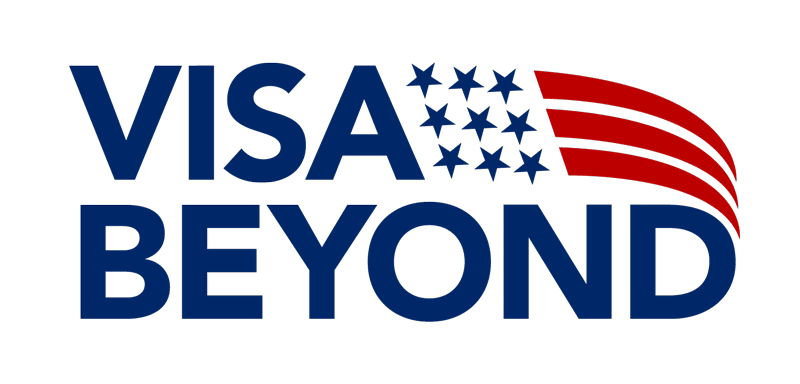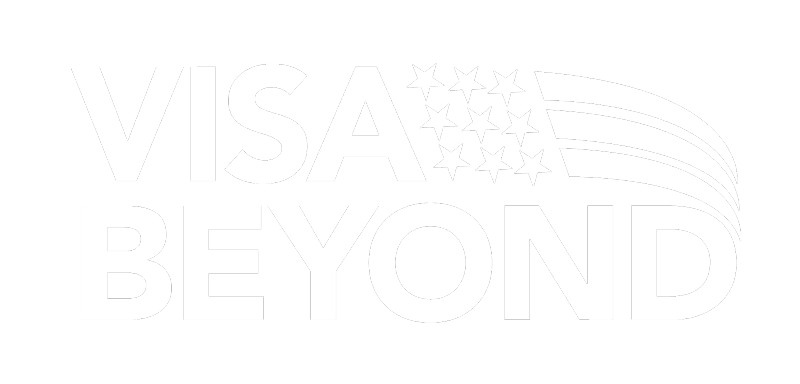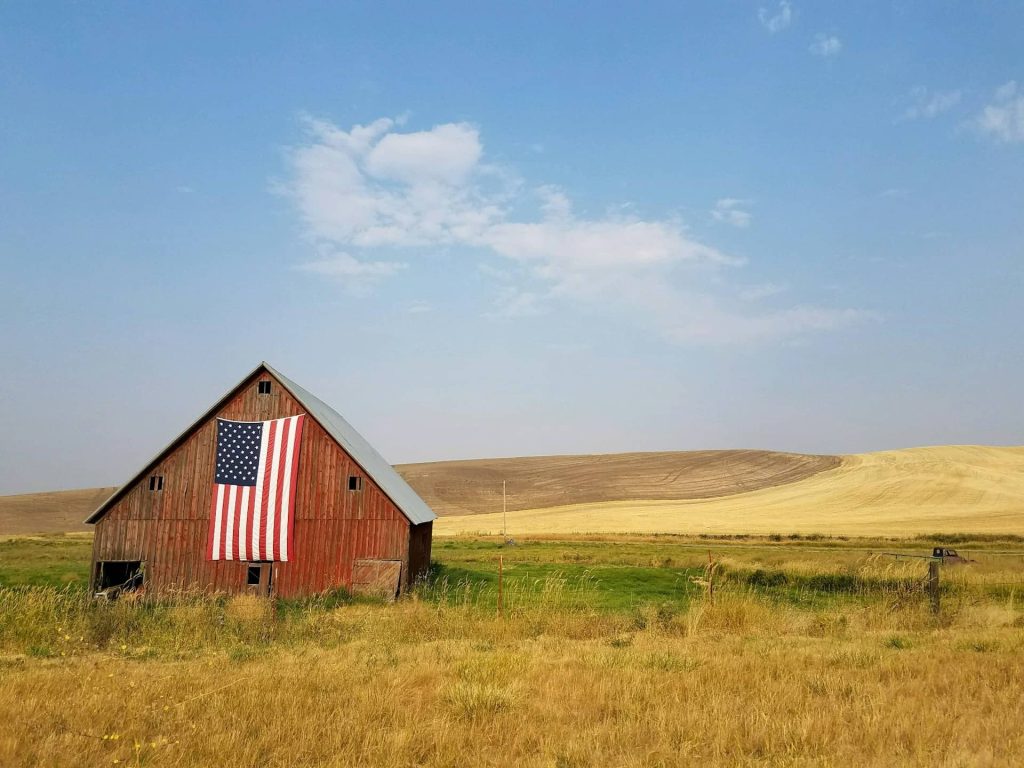U.S. Immigration Visa Plans: A Complete Guide
Ultimate Guide to a Successful U.S. Immigration Visa Plan
Introduction to U.S. Immigration Visa Plans
U.S. Immigration Visa Plans are designed to help foreign nationals navigate the complex processes of entering the U.S. for work, investment, study, or other purposes. Visa plans differ depending on the purpose of the stay, eligibility requirements, and government processes involved.

Tailored Visa Solutions
Customized guidance for choosing the best U.S. immigration visa.

Simplified Process
We streamline your US visa application, reducing complexity and delays.

Expert Assistance
Full support from eligibility checks to application submission.

Proven Success
A trusted track record in securing US visas for various categories.
What is a U.S. Immigration Visa Plan?
A U.S. Immigration Visa Plan outlines the steps, documentation, and processes required to obtain a visa for temporary or permanent residency in the U.S. The plan typically includes gathering necessary legal documents, working with sponsors (like employers), and demonstrating eligibility based on the visa type.
How US Visa Plans Differ by Visa Type
Each U.S. visa type has unique requirements depending on the category, such as work, investment, study, or family-based visas. Visa plans differ in terms of financial investment, sponsorship requirements, and duration of stay.
Common Visa Categories:
- Work Visas: For professionals and employees (H-1B, L-1, O-1).
- Investment Visas: For investors and entrepreneurs (E-2, EB-5).
- Student Visas: For students and exchange visitors (F-1, J-1).
- Family Visas: For family reunification (IR-1, K-1).
Work Visa Plans
Work visa plans, including those for a US visa or immigration visa, are developed for foreign nationals seeking employment in the U.S. and typically involve sponsorship from a U.S. employer. These plans include demonstrating your qualifications, securing a job offer, and adhering to U.S. immigration laws related to work visas.
Overview of US Work Visas
The U.S. offers multiple work visa options for skilled professionals, intra-company transferees, and individuals with extraordinary abilities.
- H-1B Visa: For specialty occupations requiring a higher education degree.
- L-1 Visa: For employees transferring from an international office to a U.S. office.
- O-1 Visa: For individuals with extraordinary ability in arts, sciences, or business.
H-1B Visa for Specialty Occupations
H-1B Visa allows foreign workers to take positions in specialty occupations that require a bachelor’s degree or higher, such as technology, engineering, and healthcare. U.S. employers must sponsor the visa.
L-1 Visa for Intra-Company Transfers
L-1 Visa is for employees transferring from a company’s foreign office to its U.S. office. It’s divided into:
- L-1A: For managers and executives.
- L-1B: For employees with specialized knowledge.
O-1 Visa for Extraordinary Ability
O-1 Visa is designed for individuals who have demonstrated extraordinary ability in fields like science, arts, education, or business. To qualify, applicants must show sustained national or international acclaim.
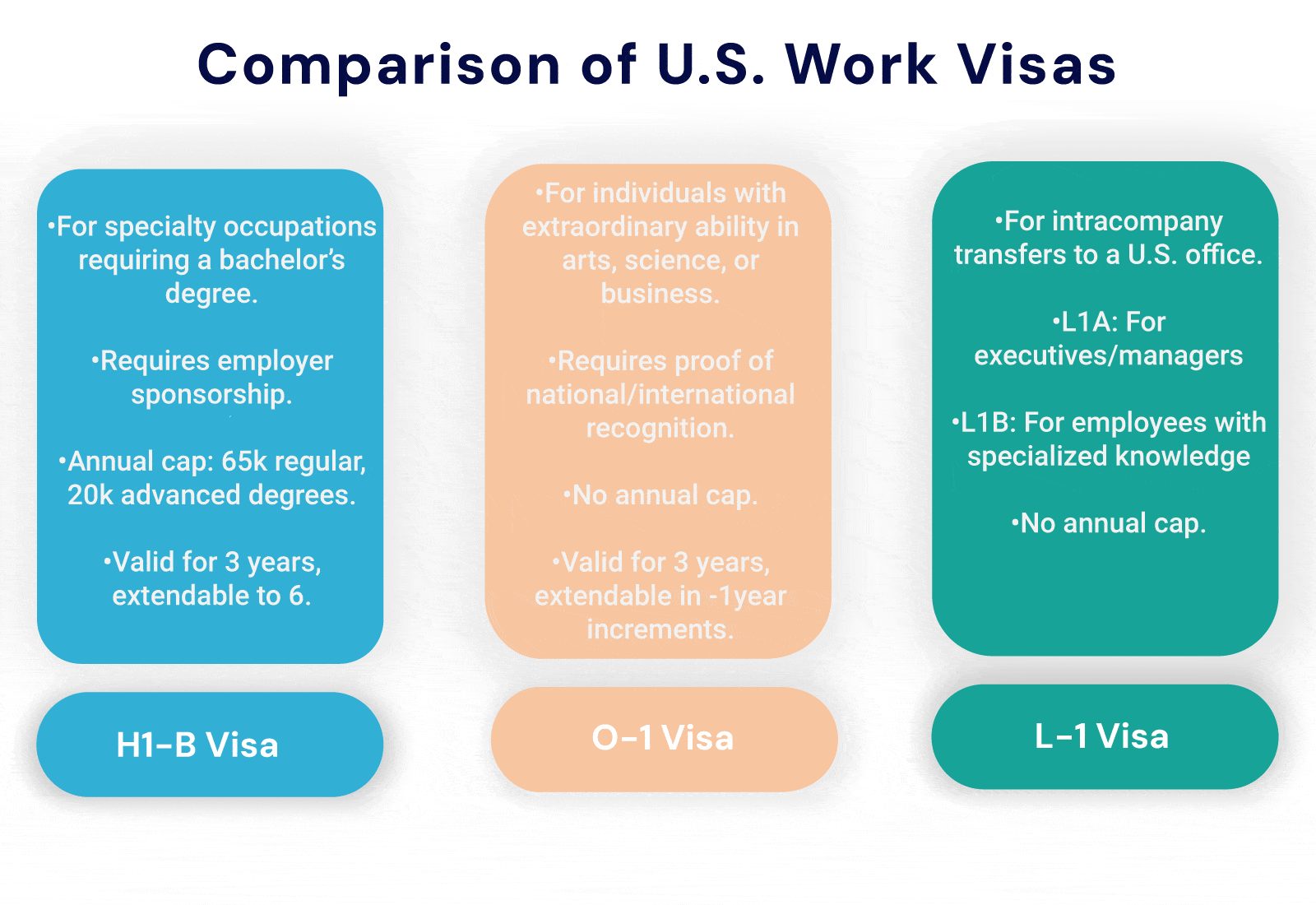
Investment Visa Plans
Investment visas, including a US visa or immigration visa, allow foreign nationals to enter the U.S. by making significant financial investments into the U.S. economy. These visas often lead to permanent residency or provide long-term visas for business activities.
Overview of US Investment Visas
The U.S. offers investment US visas for foreign entrepreneurs and investors who wish to start or invest in businesses. These include:
- E-2 Visa: For nationals of treaty countries who make a substantial investment in a U.S. business.
- EB-5 Visa: For investors who invest at least $800,000 – $1.05M and create 10 U.S. jobs.
- E-1 Visa: For individuals engaged in substantial trade between the U.S. and their home country.
E-2 Investor Visa for Treaty Countries
E-2 Visa allows nationals from treaty countries to invest in and manage a U.S. business. There is no set minimum investment amount, but it must be substantial and sufficient to ensure the successful operation of the business.
EB-5 Immigrant Investor Visa
EB-5 Visa is for investors who invest at least $800,000 in a targeted employment area (TEA) or $1.05 million elsewhere and create at least 10 full-time jobs. This visa leads directly to permanent residency.
E-1 Treaty Trader Visa
The E-1 Visa allows nationals from treaty countries to engage in substantial international trade between the U.S. and their home country. This visa does not require a specific financial investment but is focused on trade volume.
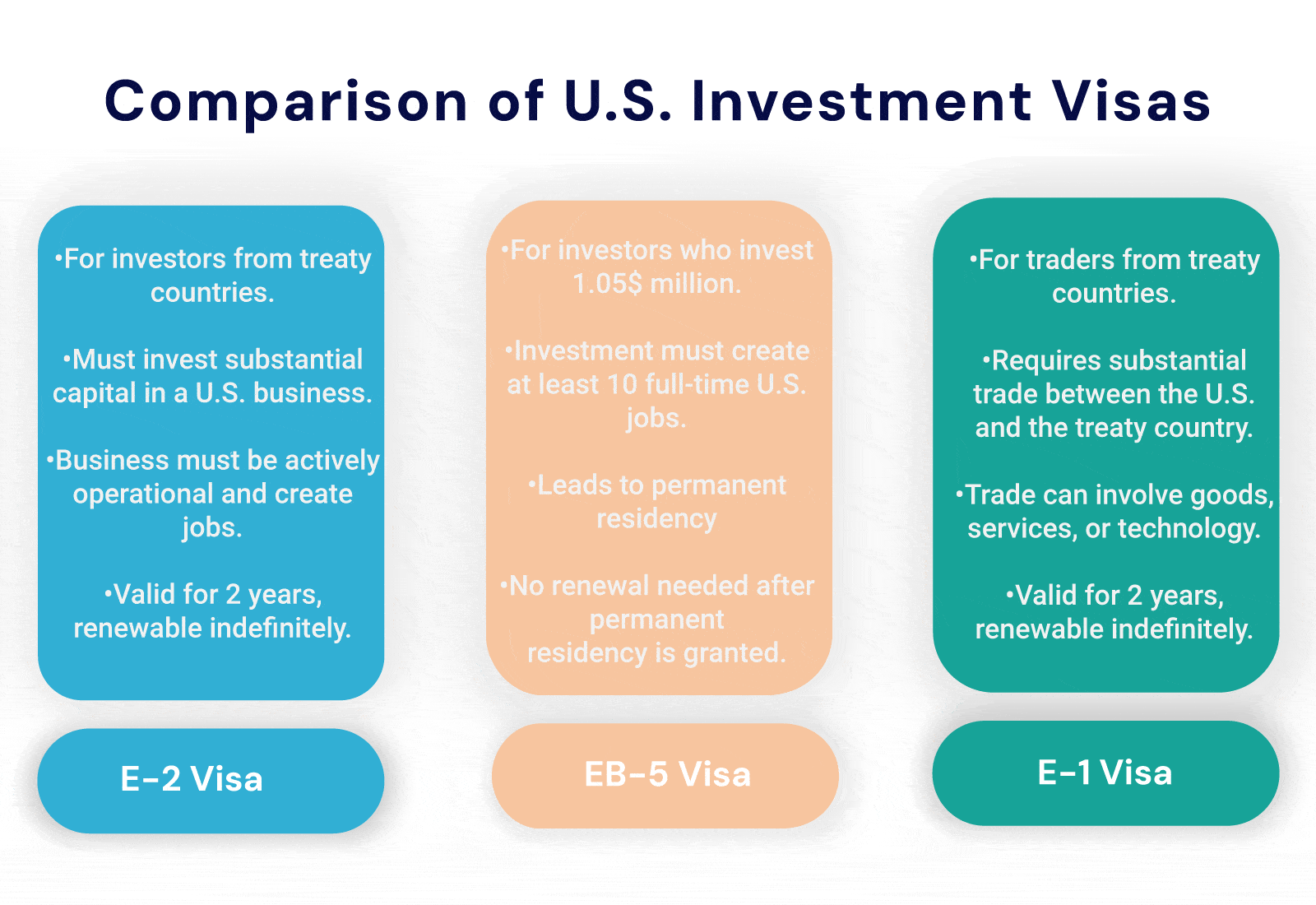
Entrepreneur Visa Plans
Entrepreneur Visa Plans are designed for individuals who want to launch a business or invest in a start-up in the U.S. These visas often require significant capital investment and the demonstration of the business’s potential to grow, create jobs, and contribute to the U.S. economy.
Overview of US Entrepreneur Visa Pathways
Entrepreneurs have two primary visa pathways to establish a business in the U.S.:
- International Entrepreneur Rule (IER): A temporary option for foreign entrepreneurs who have received significant U.S. investor backing.
- Start-Up Visa: Although not an official visa, the International Entrepreneur Rule often acts as a quasi-visa, enabling entrepreneurs to run their start-up in the U.S.
International Entrepreneur Rule (IER)
The International Entrepreneur Rule allows foreign nationals who have started businesses outside the U.S. or received substantial investment to apply for temporary parole to establish their company in the U.S.
Key Requirements:
- Must have received at least $250,000 from qualified U.S. investors or $100,000 from U.S. government grants.
- The business must have potential for rapid growth and job creation.
Start-Up Visa for Entrepreneurs
The Start-Up Visa is an initiative under the IER, offering entrepreneurs an opportunity to grow their businesses in the U.S. This visa does not currently exist in official immigration law but has been proposed as a new category for start-ups.
Key Requirements:
- A scalable and innovative business model.
- Proof of venture capital funding or government support.
Student Visa Plans
Student Visa Plans provide opportunities for international students to study in the U.S. at accredited institutions. These visas allow students to pursue academic or vocational studies and, in some cases, work part-time.
Overview of U.S. Student Visas
There are three main types of student visas that allow international students to study in the U.S., each designed for different purposes:
- F-1 Visa: For academic studies at accredited U.S. colleges, universities, and high schools.
- J-1 Visa: For exchange programs, often used by students, researchers, and professionals in training.
- M-1 Visa: For vocational studies at institutions that provide non-academic or technical training.
F-1 Student Visa for Academic Studies
F-1 Visa is the most common student visa for foreign nationals pursuing academic degrees at U.S. institutions, from high school to postgraduate studies. It also allows part-time on-campus work and provides the opportunity for Optional Practical Training (OPT) after graduation.
J-1 Exchange Visitor Visa
J-1 Visa is used for exchange programs, including university students, trainees, interns, and research scholars. It is intended for individuals participating in programs that promote cultural exchange.
M-1 Visa for Vocational Students
M-1 Visa is for individuals who want to pursue vocational or non-academic training in the U.S. This includes programs such as technical courses, culinary schools, or other specialized training programs.
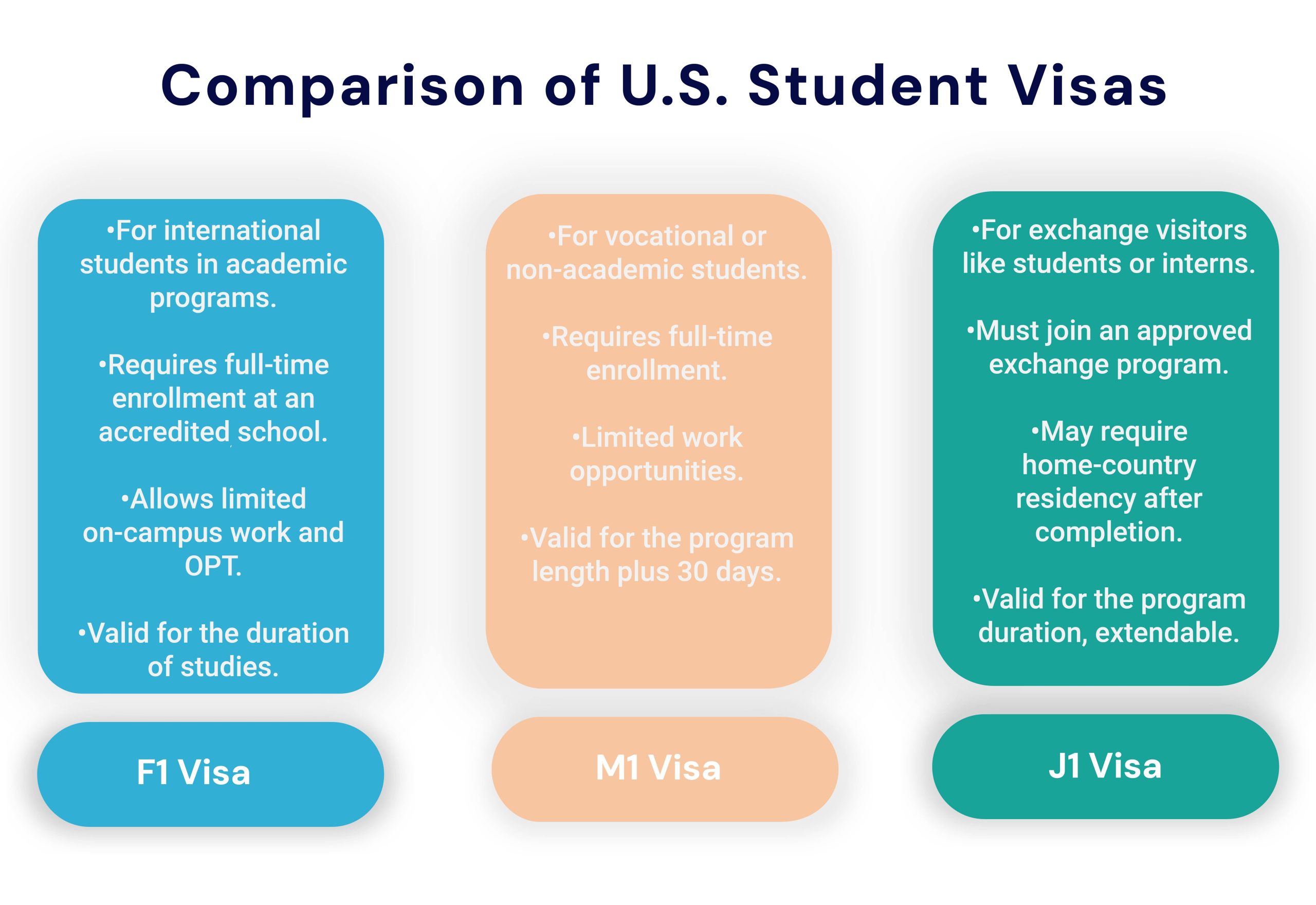
Family-Based Visa Plans
Family-Based Visas allow U.S. citizens and permanent residents to sponsor their immediate relatives or family members for immigration to the United States. These visas are categorized into Immediate Relative and Family Preference categories, depending on the relationship and priority level.
Overview of U.S. Family Visas
U.S. family-based visas are split into two main categories:
- Immediate Relative Visas (IR-1, IR-2, etc.): For spouses, children, and parents of U.S. citizens.
- Family Preference Visas (F-1, F-2A, F-3, etc.): For more distant relatives of U.S. citizens and permanent residents, such as adult children and siblings.
Let’s Make Your U.S. Dreams a Reality.
Immediate Relative Visas
Immediate Relative Visas are for the closest family members of U.S. citizens. They are not subject to annual caps and typically have shorter processing times. These visas include:
- IR-1: Spouse of a U.S. citizen.
- IR-2: Unmarried children (under 21) of U.S. citizens.
- IR-5: Parent of a U.S. citizen (if the U.S. citizen is 21 or older).
Immediate Relative Visas
Family Preference Visas are for more distant relatives of U.S. citizens or permanent residents. These visas are subject to annual numerical limits and longer wait times. Categories include:
- F-1: Unmarried sons and daughters (21 or older) of U.S. citizens.
- F-2A: Spouses and unmarried children of permanent residents.
- F-3: Married sons and daughters of U.S. citizens.
Immediate Relative Visas
Humanitarian and Refugee Visas offer protection to individuals who have been victims of crime, human trafficking, or are seeking asylum in the U.S. These visas are designed to protect those in need of safe haven and offer a pathway to legal residency.
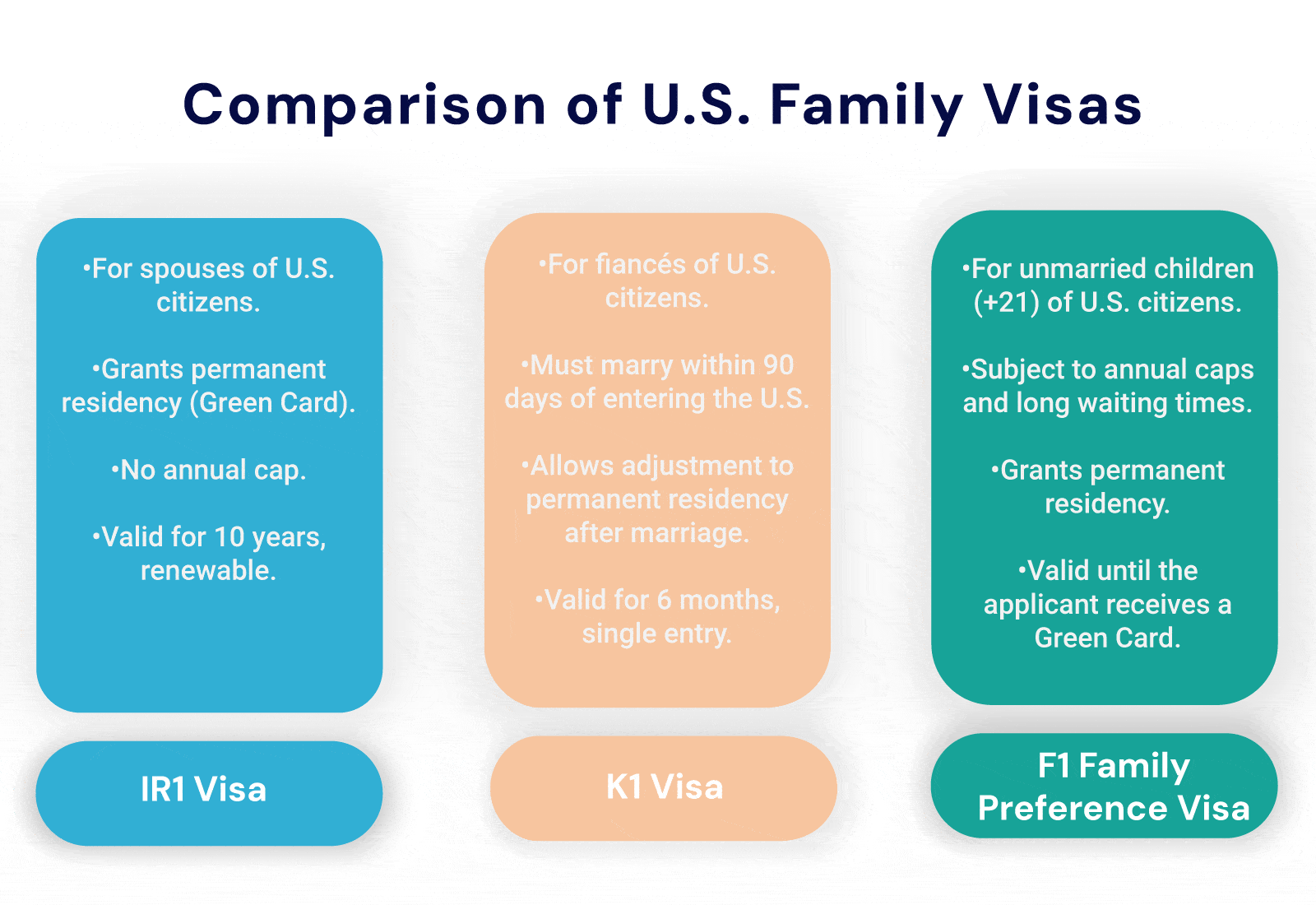
Humanitarian Visa Plans
Humanitarian and Refugee Visas offer protection to individuals who have been victims of crime, human trafficking, or are seeking asylum in the U.S. These visas are designed to protect those in need of safe haven and offer a pathway to legal residency.
Overview of Humanitarian Visas
Humanitarian visas allow individuals to enter and stay in the U.S. due to extraordinary circumstances, such as being victims of crime or trafficking or seeking refuge from persecution.
U Visa for Victims of Crime
U Visa is for victims of certain crimes, including domestic violence, assault, and human trafficking, who have suffered significant physical or mental abuse and are willing to assist U.S. law enforcement in investigating or prosecuting criminal activities.
T Visa for Victims of Human Trafficking
T Visa is for individuals who are victims of human trafficking and are in the U.S. as a result of trafficking. The applicant must cooperate with law enforcement to prosecute traffickers, unless exempt due to trauma or age.
Refugee and Asylum Status
Refugees and asylum seekers are individuals who have fled their home countries due to fear of persecution based on race, religion, nationality, or political opinions. Refugees apply for status outside of the U.S., while asylum seekers apply from within the U.S.
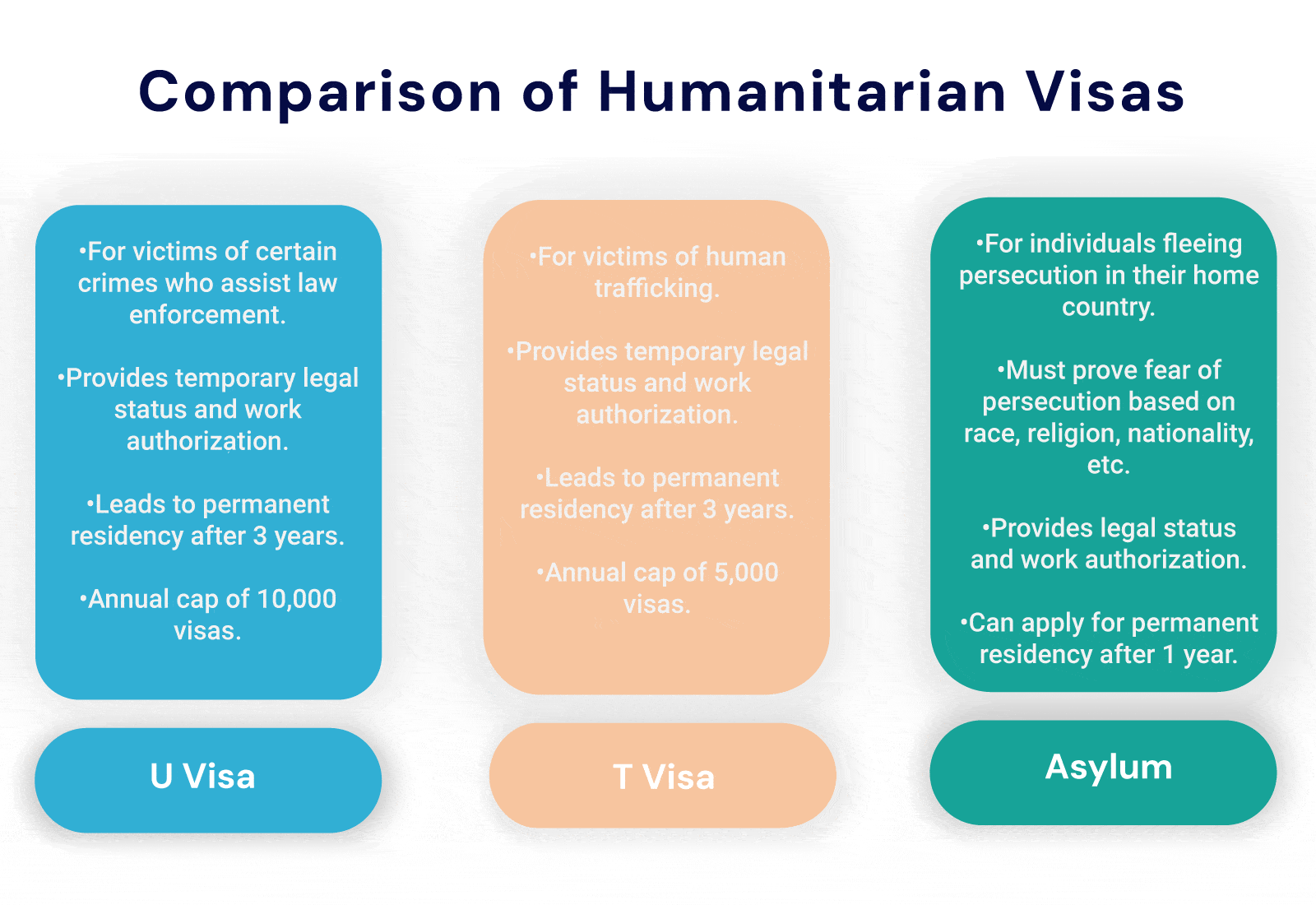
Specialty Visa Plans
Specialty visas are designed for specific groups, including tourists, entertainers, athletes, and religious workers. These visas are typically short-term and have specific requirements based on the purpose of the visit.
Overview of Specialty Visas
Specialty visas allow individuals to temporarily visit the U.S. for specific purposes, such as performing at an event, participating in religious activities, or conducting business meetings. These visas generally do not lead to permanent residency but offer an opportunity to work or visit the U.S. with US visa for specific tasks.
B-1/B-2 Tourist and Business Visitor Visas
B-1/B-2 Visa is one of the most common non-immigrant visas. It allows foreign nationals to enter the U.S. for short-term business (B-1) or tourism (B-2) purposes.
P Visa for Athletes and Entertainers
P Visa is designed for internationally recognized athletes, entertainers, and performers coming to the U.S. to participate in specific events, competitions, or performances.
R-1 Visa for Religious Workers
R-1 Visa is for individuals coming to the U.S. to work in a religious capacity. This includes ministers, religious teachers, or missionaries. The employer must be a non-profit religious organization.
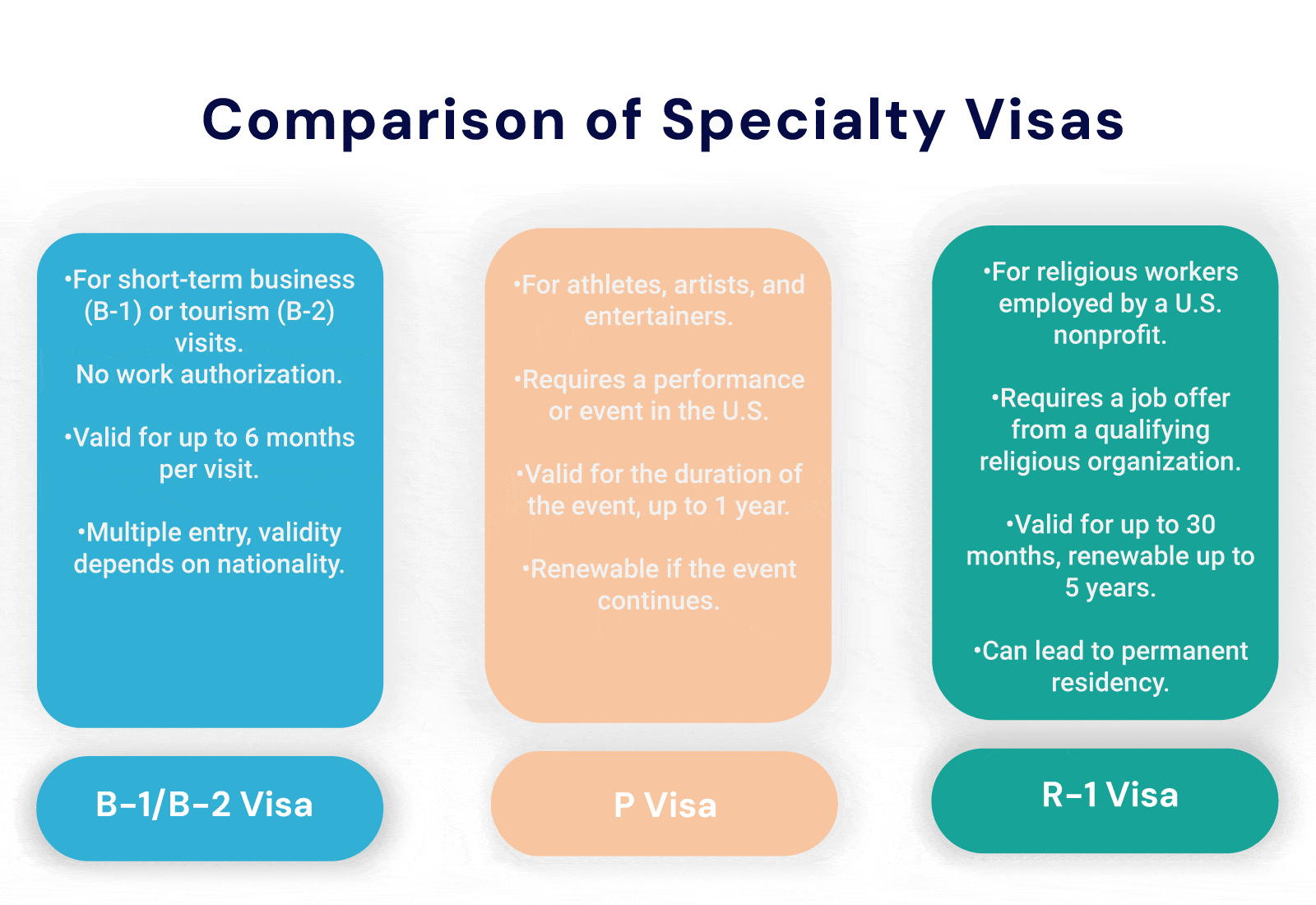
FAQs About U.S. Immigration Visa Plans
What is a U.S. immigration visa?
A U.S. immigration visa is a document that allows foreign nationals to enter the U.S. for permanent residency. There are various categories, such as family-based, employment-based, and investment visas, each with its own specific requirements.
What are the requirements to apply for a U.S. work visa?
To apply for a US work visa, you generally need a job offer from a U.S. employer who will sponsor your visa, along with demonstrating your qualifications and ensuring the job meets specific visa requirements.
How long does the U.S. work visa process take?
The timeline for obtaining a US work visa can vary depending on the visa type, country of origin, and processing times at U.S. consulates or immigration offices. It can take anywhere from a few months to over a year.
Can I apply for permanent residency through a work visa?
Yes, many U.S. work visas, such as the H-1B or EB categories, can be pathways to permanent residency (green card), depending on your qualifications, employer sponsorship, and adherence to immigration laws.
What is the difference between a U.S. immigration visa and a non-immigrant visa?
A U.S. immigration visa is for individuals seeking permanent residency, while a non-immigrant visa allows for temporary stay, such as for tourism, business, or short-term work.
Do U.S. work visas have a quota or limit?
Some US work visas, like the H-1B, have annual quotas, meaning only a certain number of visas are issued each year. Other visas, such as the L-1, do not have such caps.
Can I change employers while on a U.S. work visa?
In some cases, it is possible to change employers while on a US work visa, but you typically need to go through a transfer process, and your new employer must also sponsor your visa.
Visa Guidance
We provide personalized advice on selecting the right U.S. immigration visa based on your specific goals, whether it’s for employment, investment, or family-based immigration, ensuring that you meet all the necessary requirements for a successful application.
Documentation Support
Our team assists with preparing and organizing all necessary documents, including visa applications, sponsorship letters, and supporting evidence, to ensure a smooth and efficient process while avoiding common errors or delays.
Legal Assistance
We offer continuous legal support throughout the entire immigration process, including responding to requests for additional information, handling any visa-related issues, and advising on pathways to permanent residency or citizenship once you’re in the U.S.






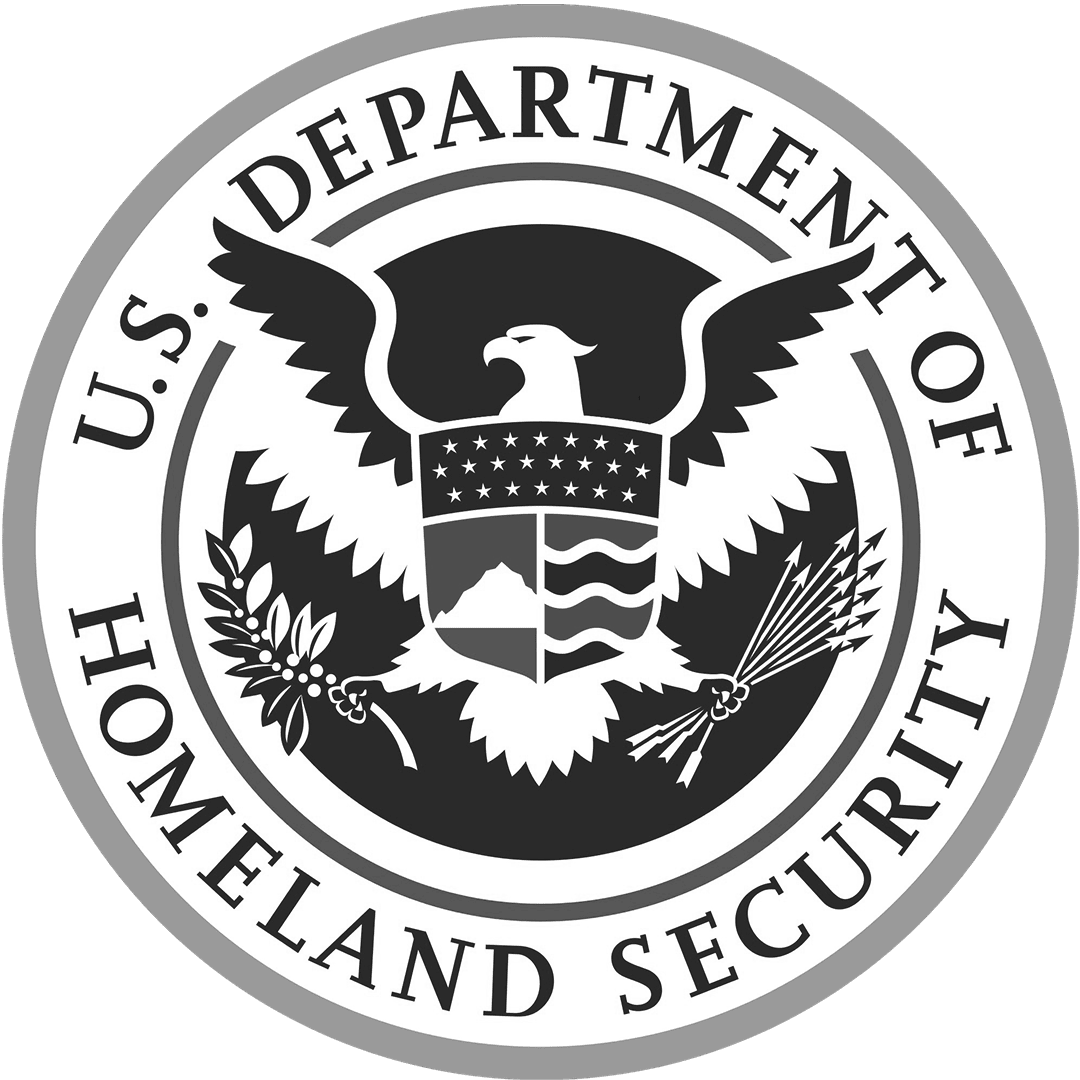

We help to achieve
mutual goals.
Latest News.
From the blog

-
- Posted by Alvez

-
- Posted by Alvez
"*" indicates required fields
